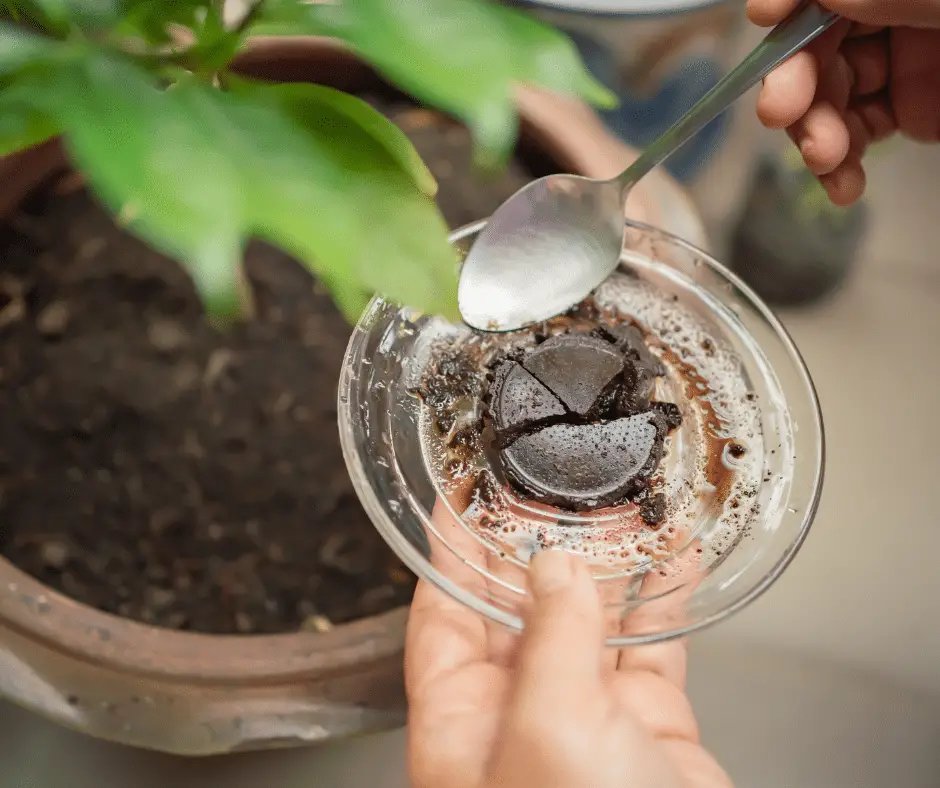The origin of the term "Joe" for coffee is a fascinating aspect of coffee culture. It carries a rich history and has become a common nickname for this beloved beverage. The term "Joe" is believed to have originated from various theories and legends, each offering a unique perspective on its roots. These theories range from it being a shortening of "jamoke" or "java" to references to Josephus Daniels, a Secretary of the Navy who implemented a regulation banning alcohol on naval ships, leading to an increase in coffee consumption. The history behind the term "Joe" for coffee is intriguing, as it reflects the evolving language and cultural significance of coffee. There have been numerous other names used for coffee throughout history and across different regions. Understanding the cultural significance and the reasons behind the popularity of the term "Joe" provides insight into the enduring appeal of this nickname for coffee.
Key takeaway:
- The term "Joe" for coffee originated from various theories and legends.
- There are historical and regional names for coffee other than "Joe".
- "Joe" has become a common nickname for coffee with cultural significance.
The Origin of the Term "Joe" for Coffee
The term "Joe" for coffee has its origin in the early 20th century. It is believed to have come from the association between coffee and the common man or the average person.
One theory suggests that "Joe" came from the word "jamoke," a combination of java and mocha. This term was used to refer to coffee in the United States Navy in the 1930s. Over time, "jamoke" evolved into "Joe" and became a popular slang term for coffee among sailors and eventually the general public.
Another theory suggests that "Joe" may have come from the generic term "cup of Joe" used to refer to coffee. During World War I, the Secretary of the Navy, Josephus Daniels, banned alcohol on Navy ships, causing sailors to turn to coffee. It is believed that "cup of Joe" originated from sailors referring to coffee as a substitute for alcohol.
Regardless of its exact origin, the term "Joe" has become synonymous with coffee. It is widely recognized and used in casual conversations and advertisements. "Joe" conveys a sense of familiarity and accessibility, highlighting coffee's widespread popularity and its connection to the everyday person.
What is the History Behind the Term "Joe" for Coffee?
What is the History Behind the Term "Joe" for Coffee?
Coffee has been called many names throughout history, but one of the most common terms is "joe." But why is coffee called "joe"?
1. Sailors and Coffee: In the 19th century, sailors often referred to coffee as "a cup of joe." This could be because coffee was popular among sailors and they associated it with something common and ordinary.
2. G.I. Joes and Coffee: During World War II, coffee was given to soldiers as a standard ration. Soldiers were known as G.I. Joes, and this may have popularized the term "joe" for coffee among them and others.
3. The Rise of Diner Culture: In the mid-20th century, diners became popular places to enjoy coffee. Waiters in some regions were called "joes" and would often ask customers if they wanted more coffee. This connection between coffee and "joe" may have contributed to the term's usage.
4. Common and Ordinary: Another possibility is that "joe" simply became a slang term for coffee because it represented something common and universally understood, much like the name "joe" for an average person.
By considering the history behind the term "joe" for coffee, we can see how different associations and cultural contexts have contributed to its widespread usage. Whether it was sailors, soldiers, diners, or a desire for a common term, "joe" has become a widely recognized way to refer to a cup of coffee.
Next time you enjoy a cup of coffee, take a moment to think about the history behind the term "joe" and the stories and experiences that have shaped its usage.
To explore coffee's history further, why not discover other interesting facts about this beloved beverage? Learn about the origins of coffee cultivation, its impact on different cultures, or the growth of coffeehouses as social hubs. Understanding coffee's history can deepen your appreciation for this global phenomenon.
What are the Theories and Legends about the Origin of "Joe"?
The term "Joe" for coffee has various theories and legends about its origin. Here are some popular ones:
- Naval Legend: One theory proposes that the term "Joe" originated from the American Navy. In 1914, Admiral Josephus Daniels prohibited alcohol on navy ships and mandated the consumption of coffee instead. This led to coffee being known as "Joe's drink" and eventually just "Joe."
- Coffeehouse Tradition: Another theory suggests that the term "Joe" evolved from the term "Java" used in 18th-century coffeehouses. As "Java" was a popular source of coffee back then, it gradually transformed into "Joe" as a nickname for coffee.
- Average Joe: Some believe that "Joe" became synonymous with coffee because it is a common name associated with regular people. Just as coffee is a commonly consumed beverage, the name "Joe" came to represent the drink itself.
- Josephus Legend: This legend attributes the term "Joe" to Josephus, a biblical figure known for a popular coffee recipe. Supposedly, the recipe became widely known and synonymous with coffee, leading to the name "Joe."
While the exact origin of the term "Joe" for coffee remains uncertain, these theories offer possible explanations. Regardless of its origin, "Joe" has become a globally recognized nickname for coffee.
Now, let me share a true story related to the origin of "Joe" for coffee. In the early 1900s, coffee was commonly referred to as "java." During World War I, soldiers found it difficult to pronounce "java" when ordering coffee. Instead, they started using the term "Joe" as a simpler and more convenient way to ask for a cup. This wartime usage of "Joe" gained popularity and became ingrained in American culture, eventually spreading globally. Thus, the practicality of "Joe" in military settings played a significant role in its widespread adoption as a nickname for coffee.
How Did "Joe" Become a Common Nickname for Coffee?
Coffee is a staple in many people's daily routines. But how did it get the nickname "joe"? The origin of this nickname for coffee is unclear. Let's explore the story behind how "joe" became a common nickname.
1. Military Connection: One theory suggests that "joe" originated from the military. American soldiers in World War I referred to coffee as "a cup of joe" because it was a common beverage in their rations. The term may have been used to differentiate it from the prohibited drink "josephus."
2. G.I. Joe: Another theory ties the nickname to "G.I. Joe," a term used for American soldiers in World War II. Soldiers would drink coffee to stay alert and focused, and the nickname "joe" came to symbolize their go-to beverage.
3. Average Joe: Coffee was commonly consumed by blue-collar workers referred to as "average Joes." This association between the working class and coffee may have contributed to the nickname "joe" for coffee.
4. Marketing Influence: In the mid-20th century, coffee companies started using the term "joe" in their advertising campaigns. This strategy aimed to make coffee more relatable and approachable for the everyday consumer. Over time, this association between "joe" and coffee became deeply ingrained in popular culture.
5. Linguistic Evolution: Language constantly evolves, and nicknames often arise organically without a clear origin. It's possible that "joe" simply emerged as a catchy and easy-to-remember nickname for coffee, spreading through word of mouth.
Regardless of its exact origins, the nickname "joe" for coffee has stood the test of time and is now deeply embedded in our vocabulary. So next time you order a cup of "joe," remember the rich history behind this beloved beverage's nickname.
To fully cherish the experience of drinking coffee, consider exploring different blends and flavors. Experiment with brewing methods, such as pour-over or French press, to enhance the taste of your cup of "joe." And support local coffee shops for an authentic and flavorful experience. Happy sipping!
What Other Names Have Been Used for Coffee?
Throughout history, coffee has been known by a variety of names. Here is a list of some alternative names for coffee:
- Java: Originating from the island of Java in Indonesia, which was once a major coffee producer, "java" became synonymous with coffee. - Joe: During World War I, G.I.s referred to coffee as "a cup of Joe". The exact etymology is unclear, but it has become a popular slang term for coffee. - Mud: "Mud" is colloquial for coffee, possibly due to its dark color or the sediment that can be found at the bottom of a cup. - Brew: A widely used term for coffee, it refers to the process of making coffee by extracting flavor from ground coffee beans. - Black Gold: Emphasizing the value and importance of coffee, this term highlights its strong influence and economic impact throughout history. - Cup o' Joe: Similar to "a cup of Joe," this term is used to refer to a serving or cup of coffee, often used casually. - Jitter Juice: This playful term refers to the energizing effects of coffee, boosting alertness and combating sleepiness. - Arabian Wine: Highlighting the rich and flavorful qualities of coffee, comparing it to the complexity and sophistication of wine. - Wake-up Juice: Coffee is often enjoyed in the morning to help people wake up and start their day. "Wake-up Juice" perfectly captures its role as a stimulant for increased alertness and energy. - Caffeine Fix: This term suggests that individuals may depend on coffee to satisfy their craving for caffeine.These are just a few examples of the many names used for coffee throughout history. The diverse range of terms reflects the cultural significance and popularity of coffee in different societies and time periods.
What Are Some Historical and Regional Names for Coffee?
When it comes to coffee, there are various historical and regional names that have been used to refer to this popular beverage throughout the years. Let's explore some examples:
1. Java: Originating from the Indonesian island of Java, this term is used to describe coffee beans produced during the colonial era.
2. Cup of Joe: This nickname for coffee has its roots in the United States Navy. It is believed to have originated in the early 20th century when Josephus Daniels, the Secretary of the Navy, banned alcohol on Navy ships. As a result, sailors started drinking coffee instead, and it became known as a "cup of Joe" in reference to their commanding officer.
3. Mocha: This term refers to a specific type of coffee bean from the port city of Mocha in Yemen. These beans are highly prized for their distinct flavor and are often used to make a rich and flavorful brew.
4. Caffeine: This term is derived from "kaffa," the region in Ethiopia where coffee is believed to have originated. It became associated with the stimulating effects of coffee due to its high caffeine content.
5. Brew: This is a general term used to describe the process of making coffee. It can also refer to a serving of coffee or the brewing process itself.
6. Joe: In addition to being a nickname for coffee, "joe" also refers to a simple and unpretentious cup of coffee. It is often used to describe a regular, everyday cup of coffee without any fancy additions.
7. Turkish Coffee: This refers to a unique preparation method where finely ground coffee is boiled in a special pot called a cezve. The resulting brew is strong and often served in small cups.
8. Espresso: Originating from Italy, "espresso" is a strong, concentrated coffee made by forcing hot water through finely ground coffee beans. It is often served in small amounts and enjoyed as a shot or as the base for various coffee beverages.
9. Frappe: This term is commonly used in Greece to describe a type of cold coffee drink made with instant coffee, water, sugar, and milk. It is typically enjoyed during the hot summer months.
10. Americano: This term originated during World War II when American soldiers in Europe would dilute their espresso with hot water to replicate the milder coffee they were accustomed to back home. This resulted in a coffee beverage known as an "americano."
These are just a few examples of the historical and regional names used for coffee. Each name carries its own unique cultural and historical significance, contributing to the rich tapestry of coffee's global history and popularity.
Is There Any Cultural Significance to Calling Coffee "Joe"?
Is There Any Cultural Significance to Calling Coffee "Joe"?
Calling coffee "Joe" is a phrase ingrained in our cultural lexicon. But does this nickname hold any cultural significance? Let's explore the origins and meaning behind this term.
The origins of calling coffee "Joe" are uncertain. One theory suggests that soldiers during World War I used "Joe" to refer to the average enlisted man. Coffee was a staple in ration kits, and soldiers began calling it "Joe" to familiarize themselves with this comforting beverage.
Another theory links the term "Joe" to Josephus Daniels, who prohibited alcohol consumption on Navy ships as Secretary of the Navy in the 20th century. Sailors turned to coffee as their beverage of choice, and it became known as "a cup of Joe" in reference to Daniels.
Regardless of its origins, the term "Joe" has become synonymous with coffee in popular culture. People from all walks of life use it, whether grabbing a quick cup from a café or enjoying a leisurely cup at home. It has transcended its original meaning and connects people through their shared love of coffee.
Fact: Coffee is the second most commonly traded commodity in the world after petroleum.
Why Has the Term "Joe" for Coffee Remained Popular?
The enduring popularity of the term "joe" for coffee can be attributed to several reasons. One of the main factors is its simplicity and familiarity. "Joe" is a short, easy-to-pronounce term that is widely understood, making it a convenient and catchy way to refer to coffee. The term holds a nostalgic appeal, harking back to a time when coffee was a beloved beverage enjoyed by many in casual settings.
Another key reason for the continued popularity of the term is its association with the working class. Coffee has long been considered a staple for blue-collar workers, providing them with the energy boost needed to get through the day. The term "joe" has become synonymous with the average person, highlighting its accessibility and affordability.
Cultural references have played a significant role in popularizing the term "joe." It has been used in movies, books, and songs, further embedding it in popular culture. This exposure has ensured that the term remains relevant and widely recognized.
To illustrate the lasting popularity of the term "joe" for coffee, here is a true story. In the late 19th century, Josephus Daniels, the Secretary of the Navy, prohibited the consumption of alcohol on U.S. Navy ships. In response, sailors turned to coffee as a substitute to boost their morale and stay alert during long hours. Affectionately calling it "a cup of joe," this nickname quickly caught on and spread throughout the Navy and beyond, firmly establishing the term in popular culture. This true account demonstrates how a simple nickname can become an enduring part of our language and culture, even in unexpected ways.
Some Well-Known Facts About Why Coffee Is Called Joe:
- ✅ The term "cup of joe" is a slang term for coffee that originated in America in the 20th century.
- ✅ The exact source of the term is unknown, but there are several theories on its origin.
- ✅ One theory suggests that the term "cup of joe" comes from Martinson Coffee, a company founded by Joe Martinson in 1898.
- ✅ Another theory links the term to Secretary of the Navy Josephus "Joe" Daniels, who banned alcohol on U.S. Navy ships in 1914, making coffee the strongest drink available.
- ✅ Linguists suggest that "joe" could be a shortened version of "jamoke," a common nickname for coffee in the 1930s, combining the words "java" and "mocha."
Frequently Asked Questions
Why is coffee called a cup of Joe?
There are several theories on the origin of the term "cup of Joe." One theory suggests that it comes from Josephus Daniels, the Secretary of the Navy during World War I, who banned alcohol on Navy ships, making coffee the next strongest substitute. This theory is unlikely as the term "cup of Joe" only appeared in writing in 1930, long after the alcohol ban. Another theory is that "Joe" is a simplified form of the word "jamoke," which was a nickname for coffee in the 19th century. The most plausible theory is that "cup of joe" is a shortened version of "cup of jamoke," which combined the words "java" and "mocha." The true origin of the nickname remains uncertain.
What are the leading theories on the origin of the term "cup of Joe"?
There are three leading theories on the origin of the term "cup of Joe." The first theory is related to Josephus Daniels, Secretary of the Navy in 1913, who prohibited alcohol on naval vessels, leading to increased coffee consumption. The second theory suggests that "Joe" is a combination of the slang terms for coffee, "java" and "jamoke," which is a combination of "java" and "mocha." The third theory proposes that "Joe" refers to the common man, and a "cup of Joe" is therefore the common man's drink.
Which theory about the origin of the term "cup of Joe" is the most plausible?
According to research by British etymologist Michael Quinion, the second theory of "jamoke" being shortened to "Joe" seems to be the most plausible. This theory suggests that the term evolved from "cup of jamoke" to "cup of Joe."
Did the ban on alcohol in the U.S. Navy impact the origin of the term "cup of Joe"?
The ban on alcohol in the U.S. Navy, enacted by Secretary of the Navy Josephus "Joe" Daniels in 1913, may have had little practical impact on the origin of the term "cup of Joe." Although the theory suggests that sailors called coffee a "cup of Joe" out of spite after the alcohol ban, historical evidence shows that the ban occurred before the term entered the English language.
Who was Joe Martinson and how is he connected to the term "cup of Joe"?
Joe Martinson was the founder of Martinson Coffee, a company established in 1898. One theory suggests that the term "cup of Joe" originated as a local nickname for Joe's coffee and later became more widely used.
Is "cup of Joe" still a popular nickname for coffee?
Yes, "cup of Joe" is still a widely recognized and popular nickname for coffee. Despite the uncertainty surrounding its origin, the term continues to be used to refer to coffee in a casual and familiar manner.

.jpg)


